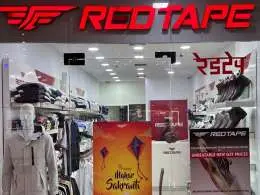Before launching the Emami Group, R S Agarwal and R S Goenka made it sure to study all important and relevant laws and acts so that they would be able to stay within the purview of the law and yet emerge winners, says a new book.
"Business: The Emami Way", published by HarperCollins India, is a repository of entrepreneurial experience, business strategy and vision of these two industry doyens which they have collected over for more than 50 years of their togetherness etching the success story of the Emami Group.
The book is replete with short stories, snippets and quotes.
"When Goenka ji and I decided to launch our business, my first task was to study all the important and relevant laws and acts that concerned us. I concentrated on the finer points of these laws and acts as we wanted to be on the right side of the law," says Agarwal.
"At the same time, I took time to read between the lines and study the legal loopholes with utmost care. This practice allowed me to figure out ways and means to enable us to stay within the purview of the law and yet emerge winners," he says.
Agarwal, along with his friend Goenka, built the business from scratch, failed, picked himself up and now heads Emami - a multinational brand Made in India.
The study of law helped them win many cases and save duty also.
"We manufactured various ayurvedic products and marketed them in a unique manner and although we were often sued by various departments of the government, we managed to win most of the cases because of our thorough knowledge of the law.
"We benefited from this exercise at every step especially when it came to payment of excise duty. In those days, duty was charged on perfume and not on cream and thus, to save duty, we labeled the product with the words 'Cream Perfume Sachet'. We paid 12 per cent duty while other companies had to pay nearly 70 per cent or more as duty," Agarwal recalls.
According to him, their product Boroplus changed their fortunes abroad particularly in Russia.
"Given their economic conditions, Russians could not afford the expensive European creams and they turned towards this antiseptic cream, Boroplus worked miracles in the Russian climate."
He and Goenka first started their adventure with Kemco Chemicals in 1968 with a very small capital.
"We were hands-on into our business. We would buy the raw materials ourselves and be there on the deck when the products were being manufactured and packed. We were even the salesmen 'par excellence'.
"Yes, we did everything on our own. Once we sold the goods, we packed up for the day and took a rickshaw to purchase raw materials that were going to be used to manufacture the next day's products," he says.
It was during this time en route to the market, aboard a rickshaw that they 'calculated' the day's profits on their fingertips.
"We did not keep any formal accounts for we were confident (or perhaps over-confident) that our calculations would be spot on," Agarwal says.
Like this report? Sign up for our daily newsletter to get our top reports.







